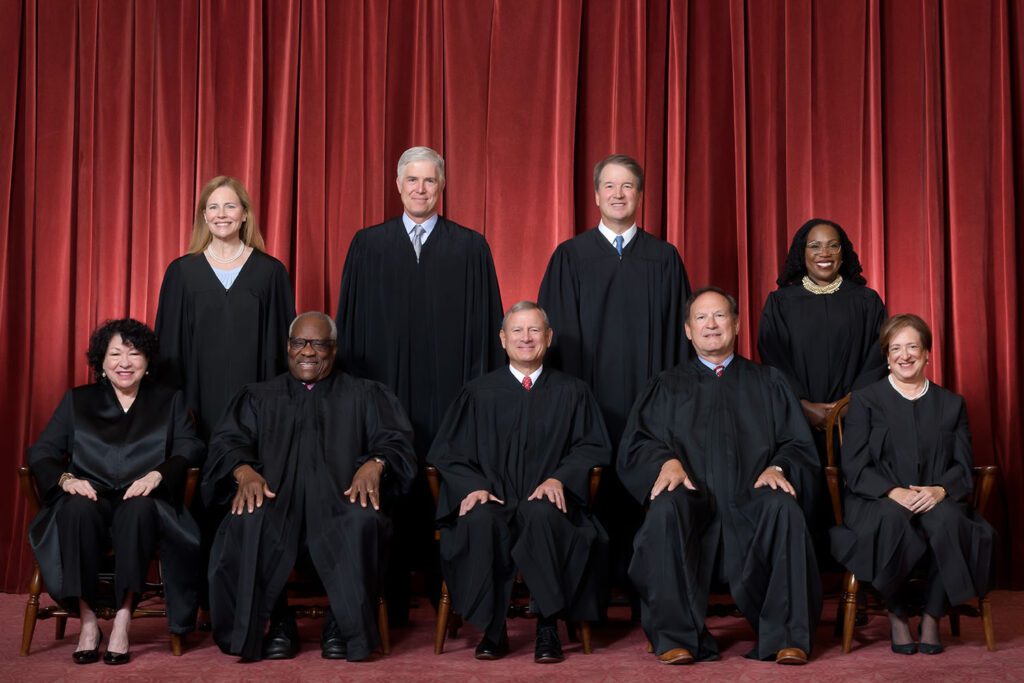Idaho charter school advocates are relieved after the U.S. Supreme Court effectively closed an avenue for public charter schools to be religious.
Closed it for now, anyway.
Last month, an evenly divided Supreme Court kept in place an Oklahoma ruling that blocked the Catholic Church from opening a public charter school there. Split 4-4, with Justice Amy Coney Barrett recusing herself, the court issued a one-sentence notice announcing that its deadlock would allow the Oklahoma Supreme Court’s ruling to stand.
The non-decision maintained the secular status — and, perhaps more importantly, state funding — for public charter schools in Idaho. But it may not be the end of the national debate over religion and charters. Oklahoma’s was a test case, according to Renita Thukral, senior national advisor for legal affairs at the National Alliance for Public Charter Schools.
“A 4-4 ruling does not establish precedent,” she said. “The exact issue could come before the Supreme Court again, not out of Oklahoma, unless their statute changes in some material way, but out of a different state.”

Thukral was speaking earlier this month at a virtual panel discussion hosted by the Idaho Charter School Association, Idaho Department of Education and Bluum.
The Charter School Association’s lobbying arm, the Idaho Charter School Network, signed onto an amicus brief urging SCOTUS to uphold the Oklahoma ruling. The National Alliance for Public Charter Schools also made arguments in the case.
Thukral said the question before the court was whether charters are private or public actors; and, if public, are they “public school enough” to be subject to the U.S. Constitution’s prohibition on government-sponsored religion?
If the court had decided that charters are more private than public, it could have jeopardized state funding.
Idaho law is clear that charters are part of the public school system, said Chris Yorgason, a Boise attorney and charter advocate. They’re funded by the state and subject to the same rules as traditional public schools, like open meeting and public records laws. And like traditional public schools, charters must be non-sectarian.
The SCOTUS result was “great, because it’s status quo,” Yorgason said during the panel discussion. “We know the world that we’ve lived in for the last 27 years, and frankly, it’s a good world to be in. It’s not perfect, but we are generally happy with where we are.”
Idaho enacted charter schools in 1998.
Terry Ryan, board chair of the Idaho Charter School Network and CEO of the charter support nonprofit Bluum, has emphasized that the Network’s stance in the Oklahoma case wasn’t in opposition to private school choice.
The Idaho Legislature this year unlocked public funds for private schools, most of which are religious. The Network supported this effort along with other mechanisms to fund private education, like private school vouchers.
The Oklahoma arguments were about public charter schools being, “in fact, public,” Ryan said during the panel discussion. “That was front and center for us in Idaho and why we took the position that we took.”
Had the case gone another way, it’s unclear whether any Idaho charters would have rushed to affiliate with a church.

Alan Reed is chairman of the Idaho Public Charter School Commission, the authorizer for most of the state’s charter schools. Asked whether any Idaho charters have proposed a religious affiliation, Reed said, “I haven’t had anything come forward like that.”
Rep. Judy Boyle, one of the Legislature’s longtime school choice supporters, said there haven’t been rumblings about religious charters at the Statehouse, either. “We don’t have those in Idaho,” said Boyle, R-Midvale.
Regarding the SCOTUS result, Reed told Idaho Education News that he was glad the Commission doesn’t have to “worry about something new.”
“I didn’t want what we’re doing here in Idaho disrupted by a ruling,” he said. “We’ve got things going really well.”
Editor’s note: Idaho Education News and Bluum are both supported on grants from the J.A. and Kathryn Albertson Family Foundation.

